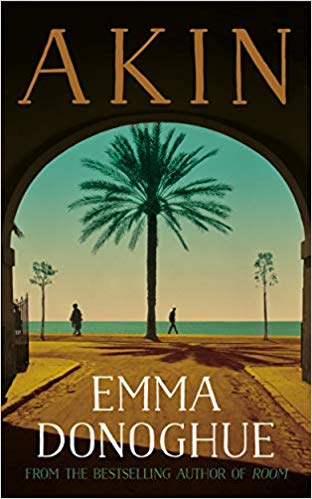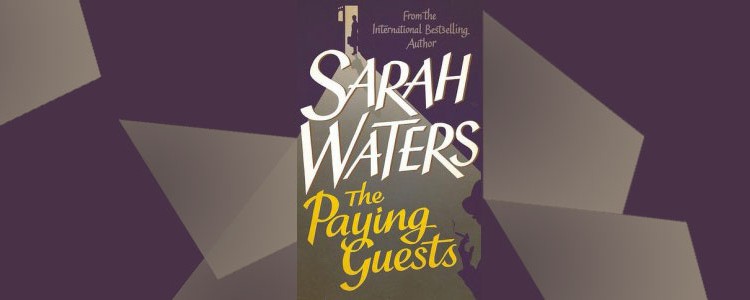Emma Donaghue’s “Akin”
Akin by Emma Donaghue is about a retired professor and widower, Noah Selvaggio, who is looking forward to visiting Nice after decades. It is his 80th birthday present to himself. He was born in Nice but after emigrating to USA with his parents, he had never returned to France. Nor had he spoken French in many decades except while conversing with his mother and even then it was a one-sided conversation as she spoke to him in French and he replied in English. A couple of days before his departure he is suddenly saddled with the responsibility of his 11-year-old grand-nephew, Michael. Michael’s father is no more and his mother is in prison. Noah is his nearest kin who is capable of looking after the child. Akin is about Noah and Michael tied by blood, learning to live and be responsible for each other. It is a stunning novel told by a writer who is mostly known for her historical fiction. The last “contemporary novel” which Emma Donaghue wrote to critical acclaim was Room. This is her second after that and is so worth reading. It has been written by someone who is extremely familiar with childish behaviour, pre-teen angst, with its glimpses of pure, innocent babyness. Michael is “difficult”, seemingly stubborn and brash, but it requires a great deal of emotional reserves on Noah’s part to remember that Michael has had a tough childhood and is behaving the best way he has learned to survive. The behaviour of the boy juxtaposed with the very similar tantrums that an elder is capable of throwing or watching the energy levels of the older and younger peaking and ebbing at more or less the same time reveals that they are not only akin in familial ties but in temperament too. It is part of life. Of course Noah being the older of the two manages most effectively to mask his feelings and reveal them only to the reader. But the intuitiveness of the elder in his caregiving of the boy are heartbreakingly sweet and tender. A transformation that seems to take place rather quickly given the few days they have spent together.
He watched Michael sleep, that reassuring regular rise and fall fo the ribs. Not cute at all; powerful. A tiny sound, as if he was sucking his tongue. The extraordinary thing about children was that they changed all the time, Noah thought, but not by attrition, the way adults did. Kids were always growing, moving up, away from their only ever temporary carers.
At the same time there are moments of learning that the little boy gives to the older man when discussing contemporary politics. This odd couple with nearly sixty-one years of age difference between them is in Nice also to revisit places that Noah recalls or his mother photographed and remain preserved in his collection of black and white pictures. While in Nice they realise that Nice was a Nazi base and Noah’s mother seemed to have had very easy access to the German forces. It is not clear for a while what her intentions were or was she sympathetic to the Resistance, but whatever the case may be it leaves Noah rattled. This revelation is not helped in any way by Michael’s awareness of contemporary events around the globe such as about Isis and Boko Haram that are equally distressing for Noah. Michael is constantly searching for news and images on his phone. Noah is unable to comprehend why, till Michael replies with a wisdom beyond his years, “If the world’s like that, I’d rather be ready.” Although Michael admits that after browsing through such terrifying images he does have to resort to “eye bleach” of cute pictures of kittens and similar stuff. Unfortunately Michael is too young to realise that memory does not work in such a manner, horrifying information cannot be erased at will. And this is borne by their holiday in Nice where there are constant reminders of the German occupation in the city as well as meeting survivors of the period who remember events of the past clearly. Soon it transpires that Noah’s mother was responsible for photographing and whisking away Jewish children hidden in secret around Nice and helping provide documentation for them in triplicate to ensure their safe passage out of the country. This is based on a true story as acknowledged by Emma Donaghue who says that this novel is her “homage to Marguerite Matisse Duthuit. Apparently the real Marcel Network managed to save 527 children from the camps by hiding them in and around Nice from 1943 to 1945. Only two were captured and sent to their deaths in Auschwitz. For the rest of their lives, the surviving members of the network preferred not to speak publicly about what they’d done.”
Akin by literary stalwart Emma Donaghue is a fine example of what literary fiction must be. It is a stunning piece of work that delves into a slice of history but at the same time remains focussed on the unlikely relationship of Noah and Michael. It is a beautiful novel that puts the spotlight on caregiving and its various aspects. For example, Noah’s mother during the war too took care of children who needed to be rescued and saved from fascist forces. At the same time this parallels Noah’s own life where he has to fend for a great nephew whose mother is incarcerated in prison and Noah has to provde the security blanket, love and emotional and physical sustenance. In both scenarios the children are for all practical purposes orphaned and need to be taken care of. While describing these stories, Emma Donaghue is able to portray a sensitive and empathetic portrait of the relationship between and older man and a young boy, who is on the cusp of growing up. It is a tough situation for any parent to be in but for an eighty-year-old to suddenly have this responsibility foisted upon him is startling but Noah does rise up to the occasion and towards the end of the story promises the sceptical boy a number of things who merely screws up his nose as if in doubt. But as caring adults know that promises given to children are meant to be kept and Noah vows to do so for Michael — as long as he can. Of course the story raises questions about “faux fatherhood” and what it means to be a parent, the feminisation of parenting whereas in this case it is only about the men, but it is portrayed with so much sensitive understanding that very soon the reader forgets there is nothing unusual in this single parenting or the lack of a physical presence of a mother in the immediate family. Instead as Noah quietly says to himself about Michael, “He is just a little boy”, a fact that one tends to forget when the child is being abrasive and brash.
Akin is an extremely beautiful book that is meant to be treasured, shared, read, and discussed. It is an extraordinary portrait of an odd couple who despite their moments of friction find their comfort levels and with it contentment with each other’s presence.
14 October 2019








